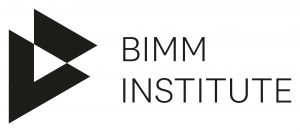Developing your creative practice: Funding advice with Ivy Ash
Arts Council England’s ‘Developing your Creative Practice’ fund (DYCP) has entered its ninth round, meaning that now is a great time to apply. The fund supports creative practitioners thinking of taking their practice to the next stage to research, create new work, travel, train, develop ideas, network or find mentors.
Typically, getting funding is no easy feat. It takes patience and a clear vision of where you see your career going. Arts Council England’s opportunity is great for anyone looking to take the next step in their career and development. We spoke to its latest fundee, Ivy Ash, to find out more about her and her funding advice.
Introducing Ivy Ash
Ivy Ash studies Songwriting and Music Business at BIMM Institute Birmingham. Her latest track, “Oops” offers a slice of energy and fun whilst promoting self-empowerment and confidence. Following its release, Ivy plans to share a stripped-down version of the song, focusing mainly on vocals and piano. The video for “Oops” will be released on February 26th 2021 and is directed by videographer Nick J.Townsend, who has previously won Best Music Video at The Black Country Music Awards 2019.
Ivy’s songwriting skills have seen her gain radio play and ‘Tune of the Week’ at BBC Music Introducing Coventry & Warwickshire. Hard work and determination have also led to Ivy securing music funding from Help Musicians UK in 2020, and more recently, Arts Council England. Ivy says that she is “looking forward to a year ahead full of creativity, music releases and, fingers crossed, live performances.”
Ivy Ash, had this to say about winning DYCP funding in its eighth round:
“I’m over the moon to receive funding from Arts Council England to develop my creative practice and explore my sound in 2021. The last year has been tough with the loss of live music work, and I know that funding applications are highly competitive, so I’m grateful for this opportunity.”
“The funding from Arts Council will be used to create, record and release new music (and an accompanying music video). My project officially started in late January 2021 and will last for six months. I can’t wait for everyone to hear what I’ve started working on!”
Ivy’s advice and top 5 funding tips:
- Take time to research what you’re applying for and recognise that every fund might not be suitable for what you want. There are many funds I know I’m not qualified to apply for yet (in terms of where I’m at in my career), but I’ve mapped them out in my calendar so I can apply later on.
- If you’re a member of the Musicians’ Union, they offer help with funding applications. Take up opportunities like this! I’m a proud member of the MU and have been for years.
- Make sure you justify where the money you’re applying for is going and be realistic on how you’re going to spend it to help your career.
- Get other creatives involved in your application, talk to them and get rough ideas of costs to submit within your fund. Funding is very much like an academic essay. Whatever you say, you need to be able to accurately back up. So get quotes, emails, correspondence – anything that can help!
- My DYCP application spans far and wide too, helping to connect many creatives. For example, on this project, my producer is based in Brighton, MUA in London, Videographer in Birmingham, Photographer and studio in Tamworth, etc. I’ve tried to utilise lots of different creative people/areas to get them involved. It’s also a nice feeling knowing the fund money will give other creatives work in this tough time!
How did you manage to secure funding?
I applied to round eight of their DYCP fund. I always try to stay up to date on Twitter to see when new funds are announced.
The Help Musicians Funding Wizard is an awesome tool too, which covers lots of organisations/funds. I actually received ‘The Transmission Fund’ in 2020 from Help Musicians UK directly to attend a Norwegian Songwriting Camp, but that’s been put on hold until it’s safer to travel (due to Covid-19).
“Don’t apply the day before the deadline – make sure you map time out to give the application your best shot.”
What was the process like?
The process was thorough and took me a fair amount of time to complete. It was really important for me to know what I wanted to get out of this funding in order to have a solid plan in place. Budgets, timings and career relevance are all really important factors. Don’t apply the day before the deadline – make sure you map time out to give the application your best shot.
Did anything you learn at BIMM help you with this process?
Definitely! Funding applications are really competitive, so it’s important to know what you want to achieve and have a good idea in place before you apply. Coincidently, I had a few assessments that tied in perfectly with reflecting on my career choices, working out where I want to go within my career and figuring out who my current connections are in the industry.
I’ve also booked in a crazy amount of tutorials since starting at BIMM to get knowledge and advice from lecturers and attend the majority of the Masterclasses that get put up on BIMM Connect. I’m signed up to the Mentor programme (where I’ve been receiving help from Ian Avery, Emily Jackson and Felix Shepherd). Jonny Amos was kindly my reference for applying to this Arts Council fund.
How are you planning on spending the money you receive?
The money will be spent on the following:
- Allowing me creative time to explore my new sound
- Recording/mixing/mastering two fully produced songs (and two acoustic versions of these songs)
- Filming one music video
From start to finish, this project will take six months. I officially started the last week of January 2021, so I’ve already started to get going with my creative time and exploring my sound, which I’ve been loving.
Huge congrats to Ivy on securing funding! You can find out more about how to apply here. To see more of our Student Success stories, click here.


